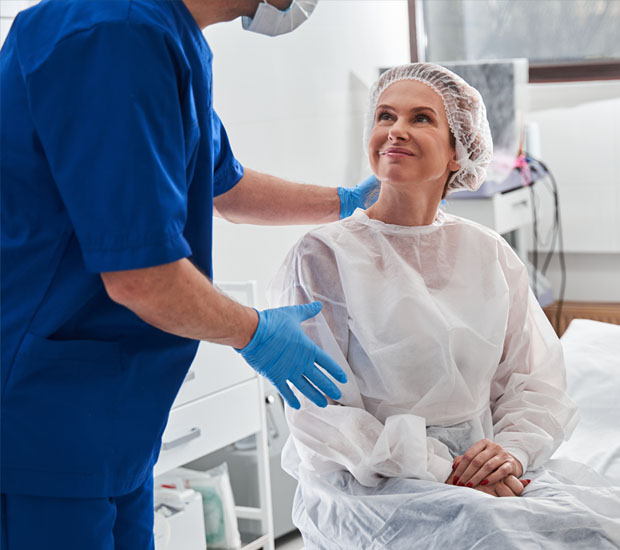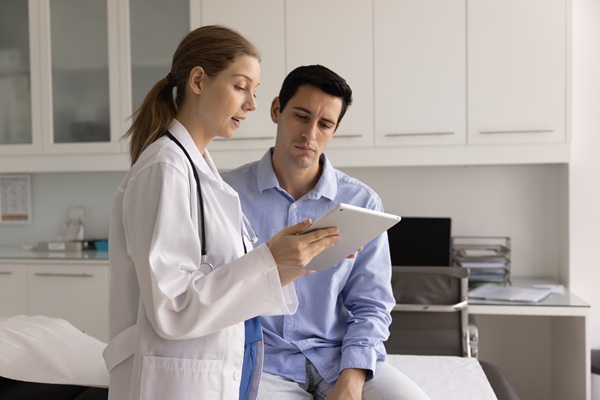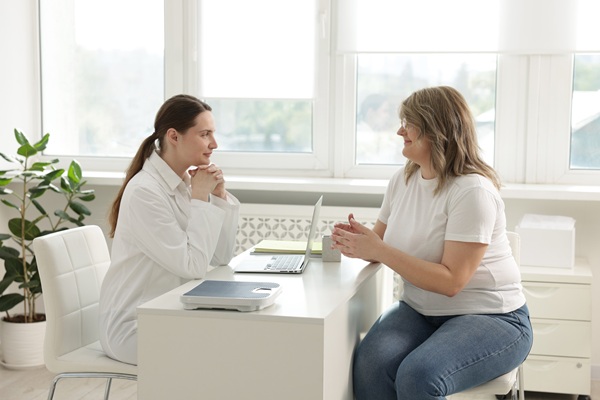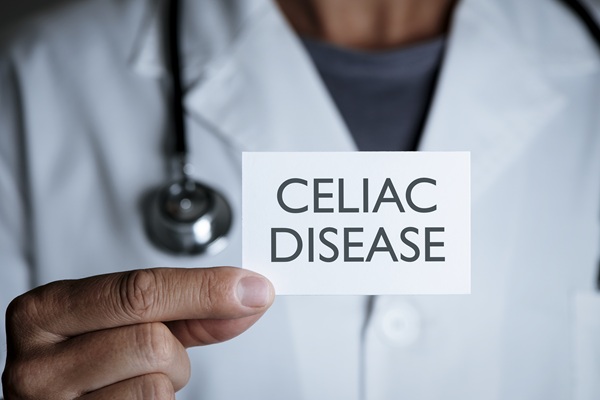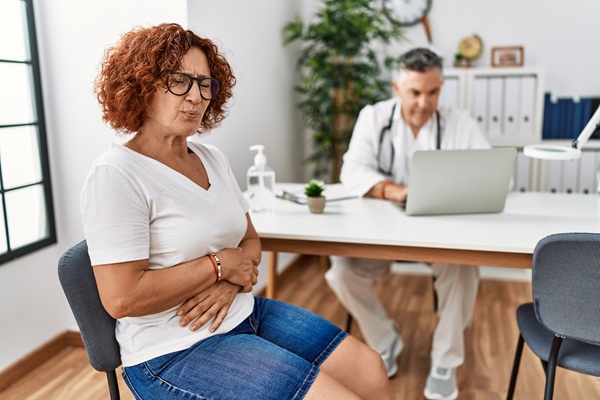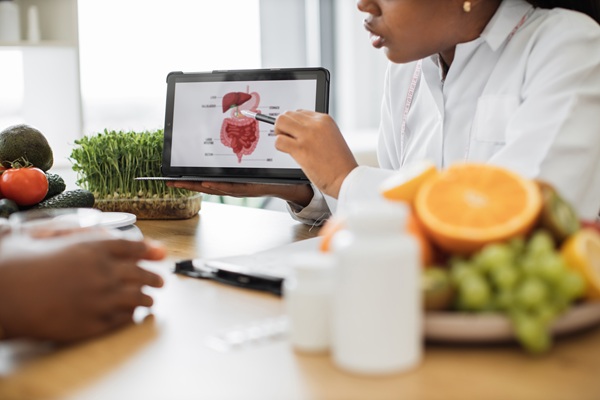EndoscopyForest Hills, NY
An endoscopy is a valuable diagnostic and therapeutic procedure that helps gastroenterologists evaluate the health of the digestive tract. It provides direct visualization of internal structures without requiring large incisions or lengthy recovery periods. This procedure allows for early detection of gastrointestinal conditions and the delivery of precise treatments when necessary.
Fortunately, Pinnacle Gastroenterology offers endoscopy to help residents in and around the Forest Hill area manage their digestive health. Are you interested in checking on your digestive tract? Call our office at (718) 747-9630 to schedule an appointment.
What is an Endoscopy?
An endoscopy is a non-surgical procedure involving a flexible, tube-like instrument called an endoscope. The endoscope has a camera and light source attached, allowing the gastroenterologist to view the inside of the digestive tract in real-time. Depending on the area needing evaluation, they may insert this tool through the mouth (upper endoscopy) or rectum (lower endoscopy, colonoscopy, or sigmoidoscopy).
Endoscopies help identify and monitor a range of conditions, including:
- Gastroesophageal reflux disease (GERD)
- Ulcers
- Inflammatory bowel disease (IBD)
- Polyps or tumors
- Barret’s esophagus
- Celiac disease
- Certain cancers
We may also collect tissue samples, also known as biopsies, during the procedure for further analysis.
“An endoscopy is a non-surgical procedure involving a flexible, tube-like instrument called an endoscope.”
Why Gastroenterologists Use Endoscopies
Gastroenterologists use endoscopy to diagnose symptoms such as chronic heartburn, abdominal pain, unexplained weight loss, gastrointestinal bleeding, and changes in bowel habits. By visualizing the digestive tract directly, this procedure enables faster and more accurate diagnoses compared to imaging tests alone.
In addition to diagnostic purposes, endoscopy may also serve as a treatment method. We can remove polyps, treat bleeding sites, dilate strictures, or remove foreign objects—all without invasive surgery. This makes endoscopy an essential part of modern digestive care.
“Gastroenterologists use endoscopy to diagnose symptoms such as chronic heartburn, abdominal pain, unexplained weight loss, gastrointestinal bleeding, and changes in bowel habits.”
Preparing for an Endoscopy
Proper preparation enhances the accuracy and safety of an endoscopic procedure. The preparation process depends on the type of endoscopy the gastroenterologist performs. For example, an upper endoscopy requires patients to fast for six to eight hours before the procedure. The gastroenterologist may allow water up to two hours before the appointment, but this may vary from person to person.
Patients undergoing a colonoscopy or lower endoscopy may need to complete a bowel-cleansing regimen, including a clear liquid diet and oral laxatives. The gastroenterologist will provide detailed instructions to ensure the colon is completely residue-free before the procedure. Further, patients should inform our team of all medications, allergies, and medical conditions. Certain blood thinners and diabetes medications may need temporary adjustment.
“The preparation process depends on the type of endoscopy the gastroenterologist performs.”
What to Expect During an Endoscopy
An endoscopy is an outpatient procedure. Before the procedure, we perform another simple review of the patient’s medical history and ensure they followed pre-operative instructions. We may also check the patient’s vital signs, including blood pressure, heart rate, and temperature. To prevent discomfort during an upper or lower endoscopy, we will administer sedation (if an anesthesiologist is on hand) and anesthesia.
Once the patient is comfortable, the procedure can begin. During an upper endoscopy, we gently insert an endoscope through the mouth and guide it down the esophagus into the stomach and duodenum. Patients should feel no more than slight pressure but zero pain. During a lower endoscopy, we insert the endoscope through the rectum and advance it through the colon. We may also use air or carbon dioxide to inflate the stomach, duodenum, or colon to improve visualization.
During both types of endoscopy, we will be able to see and record inside the body on a monitor, making it easy to spot abnormalities. If necessary, we can remove small tissues to perform a biopsy. We also continue to monitor vital signs throughout the process. The procedure itself lasts between 15 and 45 minutes.
“During both types of endoscopy, we will be able to see and record inside the body on a monitor, making it easy to spot abnormalities.”
Aftercare and Next Steps
Following an endoscopy, we will want to monitor patients for 10 to 15 minutes as a safety precaution. However, it is important that they arrange a safe, trusted driver to carry them home, as they will likely feel drowsy due to the sedative. Further, while patients will not feel pain afterward, they may experience mild bloating or cramping, temporary sore throat (upper endoscopy), light bleeding, or changes in bowel movements (especially after a biopsy or polyp removal).
If applicable, the gastroenterologist may discuss preliminary findings the same day but will schedule follow-ups for pathology results. Based on the results, the gastroenterologist will order additional testing or develop a diagnosis and treatment plan for any detected condition.
“If applicable, the gastroenterologist may discuss preliminary findings the same day but will schedule follow-ups for pathology results.”
Questions Answered on This Page
Q. What can an endoscopy detect?
Q. How do you prepare for an endoscopy?
Q. What happens during an endoscopy? How long does an endoscopy last?
Q. What can I expect after an endoscopy? Are follow-up appointments necessary?
Frequently Asked Questions
Q. Is endoscopy painful?
A. No. Endoscopy is generally not painful due to the use of sedatives or anesthesia. Patients may feel pressure, bloating, or mild discomfort during the procedure, but these sensations are temporary.
Q. How long does it take to recover from an endoscopy?
A. Recovery times vary depending on the type of endoscopy and whether we perform any other interventions. Most patients resume normal activities within 24 hours, though we strongly encourage rest for the remainder of the day following the procedure. The gastroenterologist will provide detailed instructions, likely during the consultation, to ensure a smooth recovery.
Q. Are there risks associated with endoscopy?
A. Endoscopy is considered safe, especially when a trained gastroenterologist performs it. As with any medical provider, there are risks, including bleeding, perforation, or adverse reaction to sedation. These risks are rare, and safety measures are in place to minimize potential complications.
Q. Can endoscopy detect cancer?
A. Yes. According to the American Cancer Society, an endoscopy can help detect early signs of cancer in the esophagus, stomach, colon, and other parts of the digestive tract. If the gastroenterologist takes tissue biopsies, they or a pathologist can analyze them for abnormal or precancerous cells. Early detection allows for more effective treatment options and improved outcomes.
Q. How should someone prepare for an endoscopy?
A. Understanding the procedure and its purpose often reduces anxiety. The entire Pinnacle Gastroenterology team encourages patients to ask questions and express their concerns before their appointment. Knowing that endoscopy is a routine and low-risk procedure helps many feel comfortable attending their appointment.
Call Us Today
Endoscopy is a safe, effective, and minimally invasive procedure that allows for the detailed evaluation and treatment of gastrointestinal conditions. Are you ready to learn more about this procedure? Contact Pinnacle Gastroenterology’s Forest Hills office by calling (718) 747-9630 to schedule an appointment.
Contact Us
Pinnacle Gastroenterology is located at
112-03 Queens Blvd Ste 204
Forest Hills,
NY 11375
